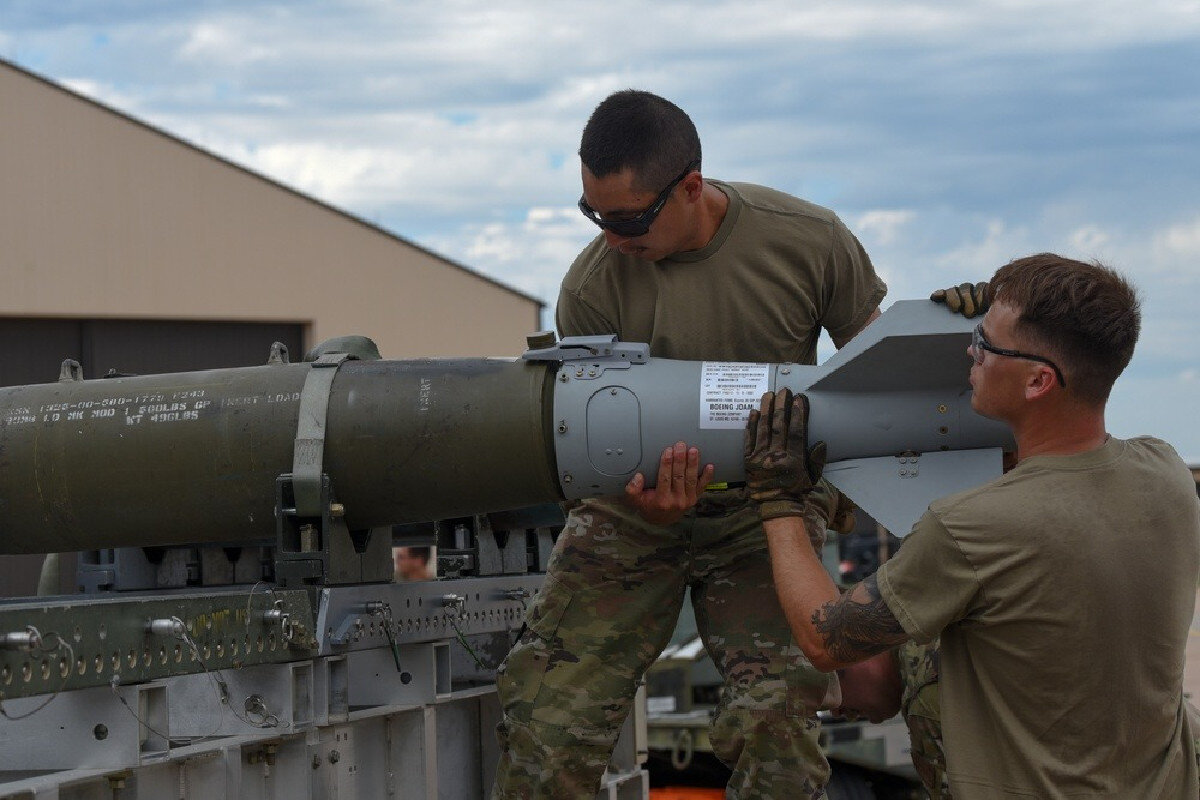Trump’s delivery of advanced arms to Israel without scrutiny

TEHRAN - During Donald Trump’s second presidency, the U.S.-Israel relationship has entered a new phase marked by intensified military, political, and diplomatic support.
Building on his administration’s close ties with Israel, Trump has reversed many of the Biden-era restrictions on arms transfers and aid, accelerating the flow of advanced weaponry and munitions to bolster Israel’s military capabilities amid the regime’s genocidal acts in Gaza.
This renewed support extends beyond military assistance, encompassing robust diplomatic backing at the United Nations and strategic cooperation aimed at maintaining Israel’s military edge in the region.
To restore Israel's military preparedness in the face of its war in Gaza, the Trump administration has expanded on its strong ties with Israel and reversed many of the Biden administration's restrictions on aid and arms transfers to Israel.
In addition to providing weapons and financial aid, this renewed support entails significant diplomatic backing at the UN and other international organizations, as well as other strategic initiatives to uphold Israel's military supremacy in the region.
The Trump administration's current approach reflects a larger geopolitical strategy focused on countering resistance groups while galvanizing Israel's military edge.
However, such ongoing support is generating heated debate and protest internationally regarding humanitarian issues, as well as discussion about the longer-term ramifications
Expanded military aid
In March 2025, the Trump administration used emergency authorities to accelerate approximately $4 billion in military assistance to Israel, avoiding the standard congressional notification period and signaling a clear break from the Biden administration failures to manage arms transfers. The $4 billion in assistance was part of a broader pattern in which Trump had authorized nearly $12 billion in Foreign Military Sales to Israel since taking office, indicating a significant commitment to protect and strengthen Israel's military.
The administration was also able to reverse Biden’s policies when it cancelled National Security Memorandum 20, which required assurances that U.S.-supplied weapons would be used in adherence to international law.
Alongside financial aid, the U.S. supplied Israel with a vast array of munitions critical to its military operations in Gaza. These shipments included tens of thousands of bombs and artillery shells-such as the MK 84 and BLU-117 bombs-4,000 Predator warheads, and components for the Iron Dome missile defense system.
Emergency sales of tank shells and artillery munitions worth hundreds of millions of dollars were also authorized to replenish Israeli stockpiles depleted during its relentless war in Gaza, which started in October 2023 and is still continuing. The arsenal provided included precision-guided munitions and large “bunker buster” bombs, which have been used in some of the deadliest Israeli strikes in Gaza.
This accelerated and expansive military aid package reflects the Trump administration’s prioritization of Israel’s military edge in the region, even as it bypassed traditional legislative oversight mechanisms.
Political and diplomatic backing
The Trump administration has demonstrated a strong political commitment to Israel through both symbolic and practical measures. Trump made Israel a top priority in his foreign policy by welcoming Israeli Prime Minister Benjamin Netanyahu as his first official guest. In an effort to show support for Israel's government and policies, the administration has retaliated against the International Criminal Court for indicting Israeli officials and lifted sanctions on some Israeli settlers in the West Bank.
In a controversial proposal, Trump suggested that the "United States take over Gaza," to redevelop it, and he imagined Gaza transformed into a resort area under U.S. control, which would essentially remove the Palestinian population. Arab states rejected this idea, but Trump clearly illustrates the administration's willingness to arrange the geopolitics in Israel's favor.
The administration has also taken actions against student activists protesting Israel’s cruel war on the Gazans by announcing the denial of federal funding to educational institutions that enable what it calls "illegal protests," and that it will deport foreign students engaged in these actions.
Strategic and regional implications
Israel sees a rare chance to solidify its regional dominance during Trump's second term. Because of the magnitude and apparent unconditionality of U.S. aid, as well as the close ties between Washington and Tel Aviv, Israel has never had more autonomy over the political and security landscape of the Middle East. This includes actions in Gaza, the West Bank, Lebanon, and Syria, where the U.S. government has essentially given Israel the all-clear.
But even with a lot of support, the relationship is complex. A transactional dimension that strikes a balance between unrestricted aid and larger U.S. strategic interests is demonstrated by the Trump administration's pragmatic approach, which includes engagement with Iran and Hamas as well as the maintenance of trade tariffs on Israeli imports.
